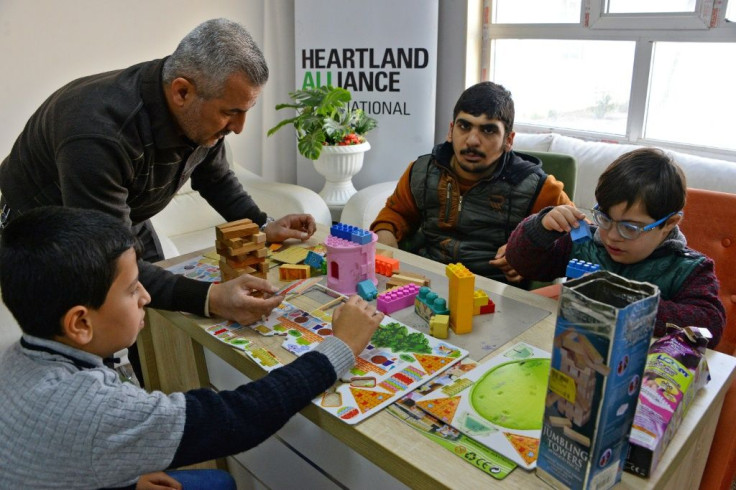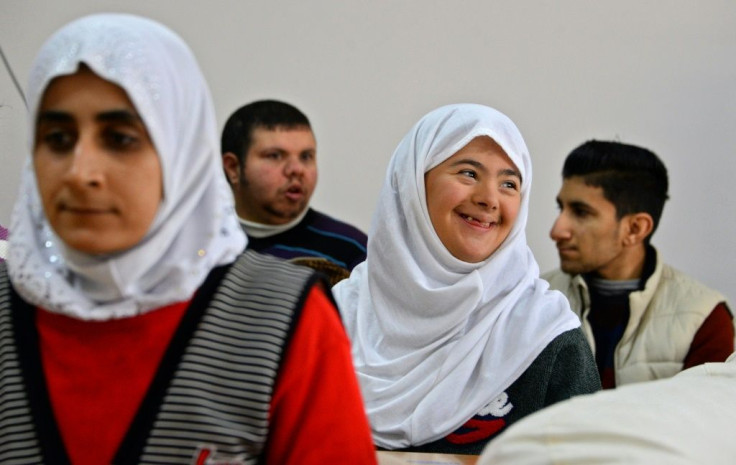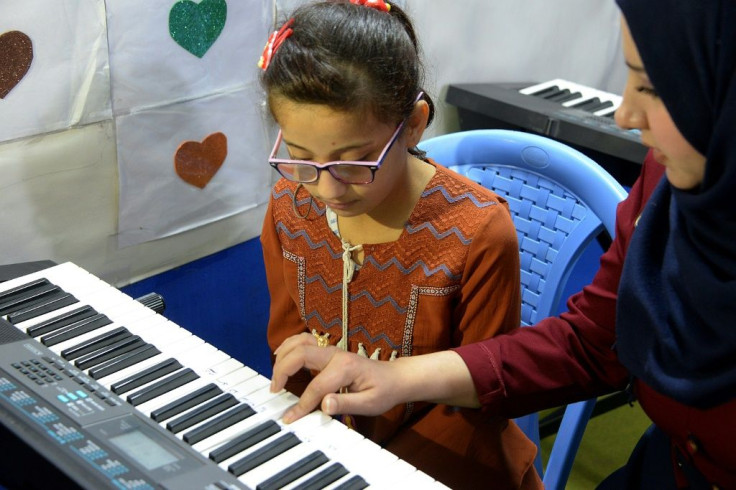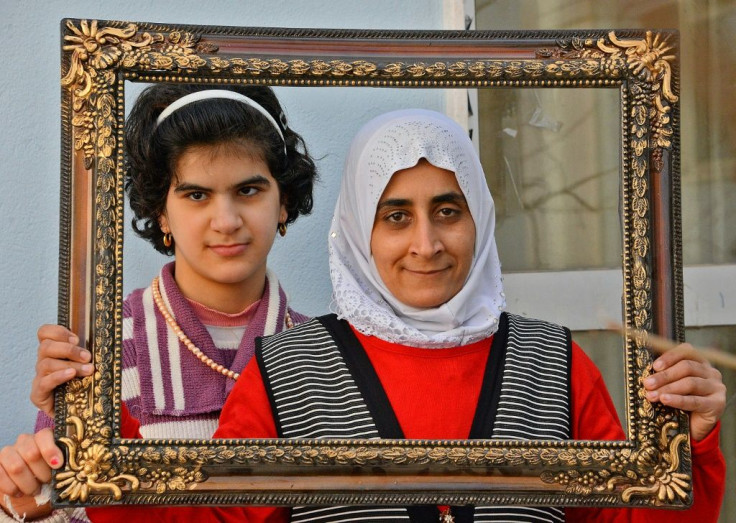Iraqi Youth With Development Disorders Suffer In, And After, Mosul Lockdown
When Mosul ended its Covid-19 lockdown last month, health specialists faced a disheartening reality: a deterioration among youth with developmental disorders and special needs in the northern Iraqi city.
Mosul's few health centres treating these young people had been shut for around four months to stem the spread of the novel coronavirus, which has infected more than 300,000 Iraqis and killed over 8,000, according to official figures.
Hundreds of children diagnosed with various conditions, including autism spectrum disorder (ASD), were deprived of socialisation classes, speech training and physical therapy -- all described by doctors as essential.
"The spread of the coronavirus and the lockdown really affected the situation for our young patients, as they were not able to come to hospitals or treatment centres," said Ilham Khattab, an autism specialist in Mosul.

"Their cases got worse and they had relapses. It was disastrous."
Decades of war and poor investment have left hospitals across Iraq in bad shape, but the infrastructure in Mosul -- recaptured from the Islamic State jihadist group in 2017 -- is especially lacking.
Even now, there is only one operational general hospital in a city once seen as a destination for the best medical care in the country.
The Fakhri Dabbagh Centre in Mosul's east is treating 170 children with symptoms of ASD and other special needs, offering help free of charge.

Parents wait outside in the public facility's packed hallways as kids take rehabilitation courses in two small rooms.
While nurses are happy to see their patients again, long-standing challenges remain.
Nisrin Hamdi, a 63-year-old social worker, told AFP the centre lacked equipment to provide speech and motor skills sessions, while staff need advanced training.

"Our capabilities are limited and we cannot absorb more patients. There's not even a transportation system to bring in patients" who have trouble accessing the centre, she said.
Private clinics offer help too, but their fees are hefty for many Mosul families with no income.
One such private facility, the Special Giving Institute, charges 120,000 dinars ($100) for a month of rehabilitation programmes.
Its head, 35-year-old Dr Ahmad Sufi, said he had noticed a rise in cases of ASD across Nineveh province since IS overran its capital Mosul in 2014.

He said staying at home -- whether to hide from IS rule or during a coronavirus lockdown -- can exacerbate the disorder.
"We had about 4,000 cases (requiring treatment) in Nineveh before IS. It reached around 6,000 under IS and now we are at 10,000 cases," Sufi told AFP.
In a small room, about a dozen children practise a short eight-note tune on keyboards to improve their motor skills.
"If these children are not treated, their personal and psychological development will deteriorate," the clinic's head, Dr Mohammad al-Qaisi, told AFP.
Some studies show increased screen time for young toddlers is linked to a higher likelihood of ASD symptoms.
Umm Laith, whose four children are all being treated at the Fakhri Dabbagh Centre, told AFP that staying at home seemed to have set them back.
"Because I was afraid for my children, I kept them watching television or playing with their mobile phones. This isolation led to them getting worse," she said.
Doctors complain of broader issues too, including stigma.
"One of the biggest challenges we have is that even after diagnosing a child with autism, their parents won't accept it," said Rahmat al-Zuhair, a health worker in Mosul.
"That affects how quickly we can begin treating them."
Several international organisations in the city are trying to plug the gap in aid and raise awareness. They include Save the Children, which has offered psychosocial support to 15,000 kids there since last year.
"The needs went up a lot with Covid-19 -- when the lockdown happened, many families in Mosul called us asking when centres would reopen," said spokeswoman Amal Taif.
She said the lack of doctors for children with special needs meant that symptoms of developmental disabilities could go unnoticed or be misdiagnosed.
"There are mental health workers, but they don't necessarily have expertise in children, or (there are) paediatricians, but without a mental health focus."
And in Mosul, Taif pointed out, even basic provisions that can help children with special needs improve are often a long way away.
Access to education is limited, parents often struggle to provide nutritious food for their children, and families often still live in homes still severely damaged by war, without electricity and running water.
© Copyright AFP {{Year}}. All rights reserved.





















